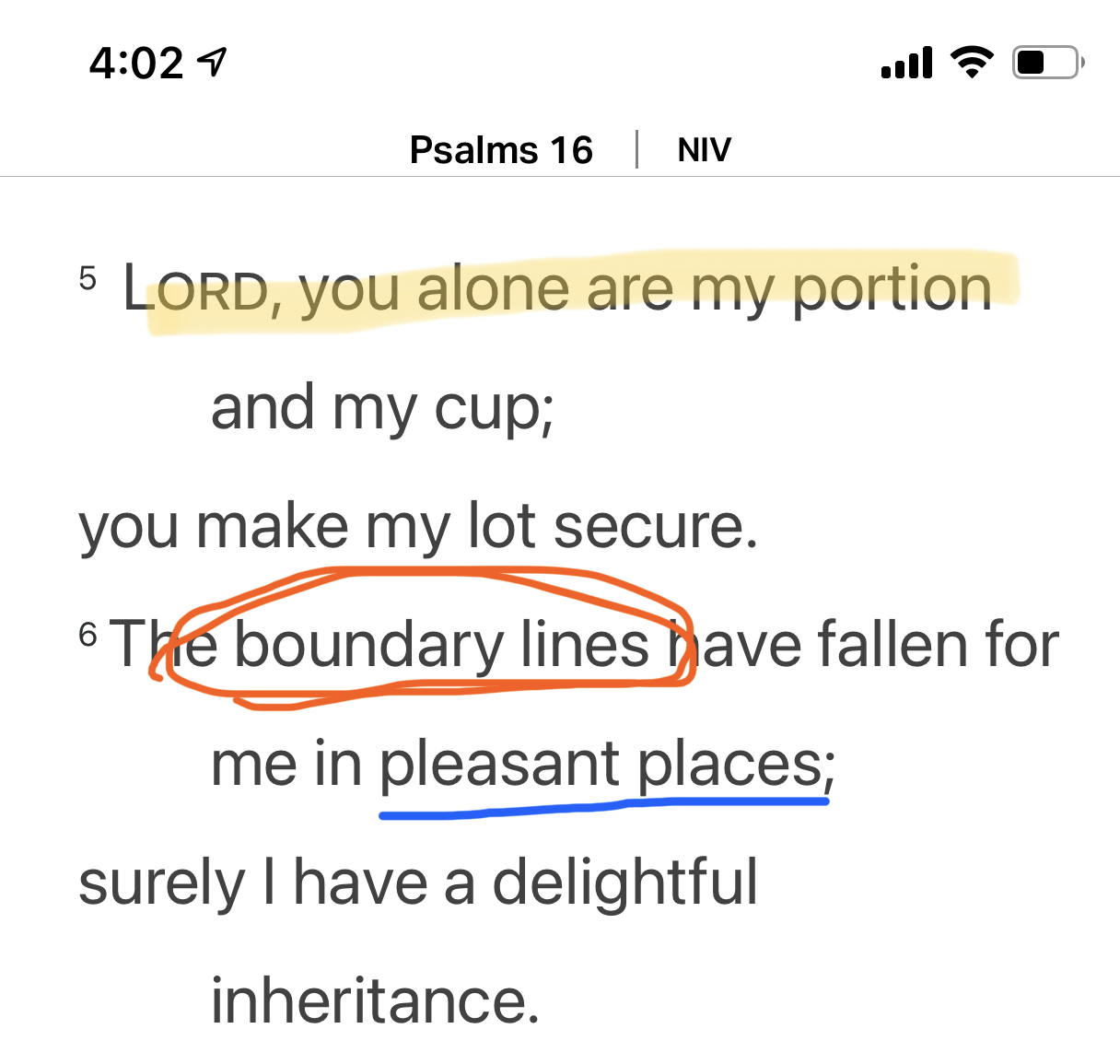Do you struggle with boundaries? With setting them and respecting them?
I grew up in a small town and now live in that same small town, but my perspective about the city limits isn’t the same now as it was growing up. Growing up, the boundary of the city limits felt, well, limiting. I always thought there was so much more living to do on the other side of those signs and couldn’t wait to get out.
Now, after having lived on the other side of those limits, I’ve come to love what is offered in the same town that I used to want to leave. Of course, there’s nothing wrong with moving away from the city or town where you were raised, but I think my experience with the city limits can help us understand a couple of verses that I read yesterday.
Lord, you alone are my portion and my cup; you make my lot secure. The boundary lines have fallen for me in pleasant places; surely I have a delightful inheritance. (Psalms 16:5-6 NIV, emphasis mine)
David writes about boundaries as good things. He doesn’t sound like a man who is fighting against the limits trying to find something more on the other side. David sounds content. He even says that everything within those boundaries — his inheritance — delights him. Who talks like that, and am I the only one wondering why I don’t always feel that happy about the boundary lines that my life consistently bumps up against?
David’s words remind me of Paul’s words written years later in a letter to the believers in Philippi: “I have learned the secret of being content…” (Philippians 4:12 NIV). What’s the secret? The Lord.
[Tweet “Until Jesus is enough, we’ll never have enough.”]David could see boundary lines as pleasant because the Lord alone was his portion. No matter where the limits were, they weren’t keeping him from the God who was enough. Literally, anything else he had was gravy. That’s why the boundary lines were pleasant for David. In fact, we’ll stop fighting against the boundary lines when what we want is being protected by them.
Paul spoke of Jesus in the verse after he wrote about the secret. He said that in Christ he could do anything. In the context, it was a statement less about doing more and more about being content in less. Or more. With a feast or in a famine.
The question that we have to ask honestly ask ourselves is whether or not Jesus is enough? Until He is, we’ll never have enough, but when He is, we’ll not only be content with the enough we have, but we’ll delight in it, too.





